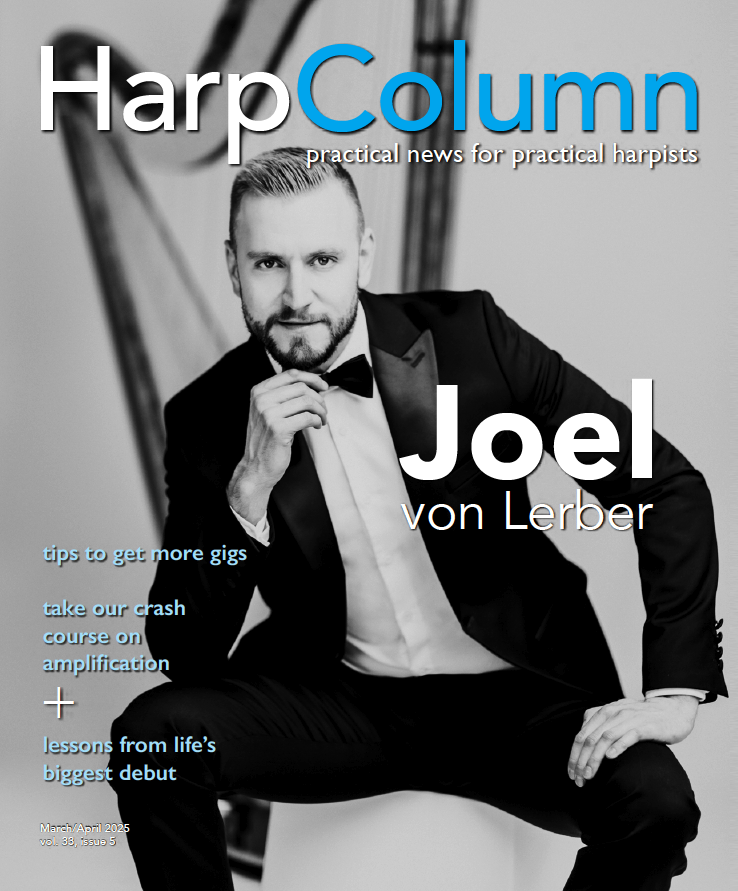Home › Forums › Teaching the Harp › Students with special needs
- This topic has 7 replies, 7 voices, and was last updated 9 years, 5 months ago by
megan93.
-
AuthorPosts
-
September 28, 2006 at 9:06 pm #88281
unknown-user
ParticipantI am so excited to be teaching at a music school in Saint Paul now!
They have filled my studio with about 40% students with special needs
(some piano/harp). I have some background in this, but would very much
value connecting with other teachers who work with such students to
share resources and experiential wisdom. 🙂 These are some of the
issues I work with:Mental Retardation
Visual impairment
Cerebral Palsy
Athritis
Brain tumor survivors
I plan to use Suzuki method for the visually impaired, but have been
introduced to Braille music notation. I have heard this is quite
complex and tedius, but am still exploring its value. The issue of
mental retardation needs more exploring. I have been observing the
student and am formulating some ideas, but would value input from
others as well. I love the diversity of teaching a “gifted” student one
lesson and then switching gears to someone with a special need –
sometimes working with someone who has both. This makes me especially
happy and interested in my work, but it is indeed a challenge that
requires a great deal of empathy. 🙂September 30, 2006 at 12:25 am #88282Saul Davis Zlatkovski
ParticipantWith arthritis, I might suggest dry heat before lessons, and arnica gel after to ease aching.
October 2, 2006 at 1:12 pm #88283Evangeline Williams
ParticipantHow exciting!
October 2, 2006 at 2:14 pm #88284Calista Anne Koch
SpectatorGoodl luck – it is so rewarding to work with special needs.
October 14, 2006 at 5:50 am #88285Elizabeth Volpé Bligh
ParticipantQuite some time ago, I had a student with a learning disability. She learned beautiful technique, good rhythm, and could play each hand separately perfectly, but she could not play two lines at once. We tried all sorts of approaches for about two years, I used various excellent books on pedagogy, but finally she gave up. I hope she tried a single-line instrument afterwards, because she was musical. I hope you have a wonderful time in this endeavour. You will probably find that each student will be able to play only certain types of repertoire, depending on their particular abilities.
October 22, 2006 at 3:00 am #88286unknown-user
ParticipantCalista, thank you for your thoughtful post. I wished we lived nearby
to share notes. 🙂 I had a very interesting lesson with a student with
mental retardation. The caregiver attended and observed. The caregiver
is an educator with a
deep understanding of this student. She advised me to work directly
with the sound with this student. Rather than attaching symbols and
labels to musical ideas, to just simply improvise with her and let her
respond to the patterns I create – and I respond to hers. This is a very interesting approach.
The student can give her very best attention to the sounds when we play
together. She creates music that contains some patterns and some
randomness. She creates rhythmic/melodic motives, but begins the piece
at a different spot on the keyboard each time. I play along on the harp
imitating her motives. We also tell stories with music exploring the
opposites of high/low, loud/soft, fast/slow, since that is the first
step in musical development in children. It will be interesting to see how this approach evolves over time.October 23, 2006 at 12:41 am #88287jennifer-buehler
MemberHave you looked into Christine Cotruvo’s work with Blind harp students?
November 14, 2015 at 6:42 am #191458megan93
ParticipantHi,
I’m teaching an 11 year old with cerebral palsy. How would you go about teaching the hand position as he can only bring his fingers in so much and I worry that it might be more tense that way. He also has learning difficulties so at the moment everything is taught by ear.
Thanks
M x
-
AuthorPosts
- You must be logged in to reply to this topic.





